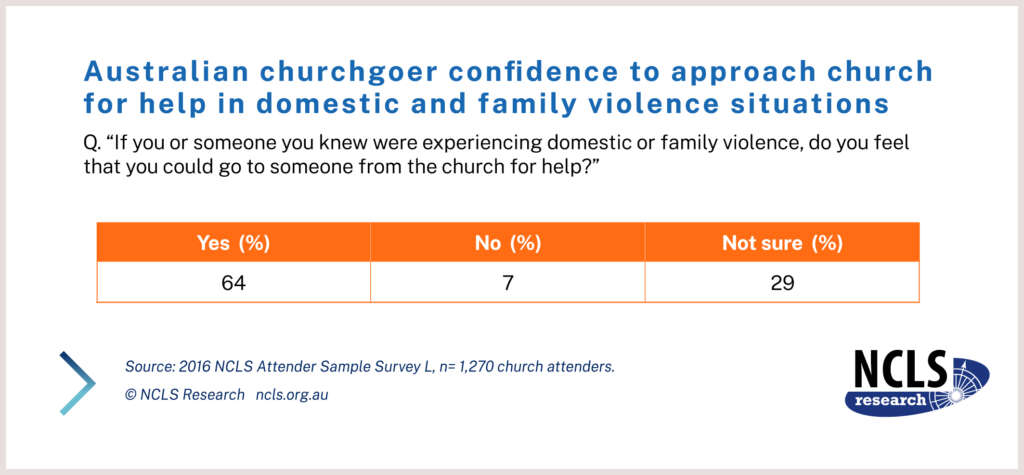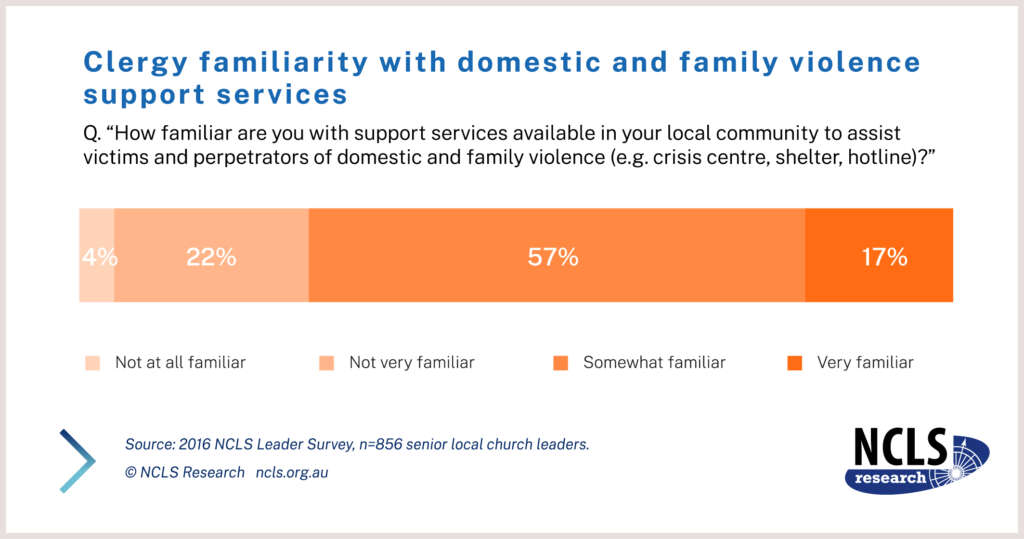A landmark study by NCLS Research has revealed that 67 per cent of Australian clergy have experience in supporting people in Domestic and Family Violence (DFV) situations.
Results suggest a particular depth of experience in the Salvation Army, whose leaders were most likely to have helped victims of domestic abuse. A huge 88 per cent of local church leaders in The Salvation Army had dealt with DFV situations, compared with 67 per cent of leaders in all-denominations nationally. In addition, nearly all (93 per cent) had referred a victim of DFV to support service agencies. They were also the most likely to have undertaken a safety risk assessment.
Co-author of the research, NLCS Director Ruth Powell suggested the reason for the high proportion of Salvationists who helped victims of DFV could be that local corps and leaders are often strongly connected or embedded with their community service arms, potentially making them more visible and accessible.
“The team approach of husbands and wives may help,” she told Eternity.
” Our research confirms wider results that violence is a gendered issue. If women are more likely to be victims, then having a female local church leader may help with making contact.”
 The study is the first national, cross-denominational analysis of Australian clergy responses to domestic abuse, based on data from church leaders and churchgoers in the 2016 National Church Life Survey, which provided the first Australia-wide cross-denominational statistics on Christian clergy responses to DFV.
The study is the first national, cross-denominational analysis of Australian clergy responses to domestic abuse, based on data from church leaders and churchgoers in the 2016 National Church Life Survey, which provided the first Australia-wide cross-denominational statistics on Christian clergy responses to DFV.
 Findings also showed a clear majority of clergy had responded to victims rather than perpetrators. The most common responses were referring victims to a support service (77 per cent) and 70 per cent providing direct counselling.
Findings also showed a clear majority of clergy had responded to victims rather than perpetrators. The most common responses were referring victims to a support service (77 per cent) and 70 per cent providing direct counselling.
“This is Domestic and Family Violence Prevention Month and it is important to note that around six in 10 (64 per cent) Australian churchgoers feel they can approach their church for help with domestic and family violence situations,” Powell, said.
She cautioned, however, that while about three-quarters of senior local church leaders considered themselves to be familiar with local DFV support services to some degree, just one in six considered themselves very familiar.
“There is room for growth in the way local church leaders, such as clergy, respond to this problem given the majority of churchgoers feel confident about seeking help from someone at church,” Powell said.
“We have learnt that most churchgoers claim to be confident about seeking help from someone at church. However, it was concerning to see in the results the proportion of clergy who have offered couples counselling. Those who are experienced in supporting survivors do not recommend this approach. Instead, it is seen as best to reach out to specialist services.”
Email This Story
Why not send this to a friend?



